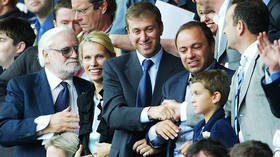Major medical paper opposes academic boycott of Russia

While condemning Russia’s military action in Ukraine, the UK’s major weekly peer-reviewed medical journal, the BMJ, has refused to join the academic boycott of Russian authors.
“We will continue to consider papers for publication from Russian authors and institutions. Our view is that science and health have the potential to bring people together in common purpose to improve understanding, cooperation, and relationships,” the journal’s editor in chief, Kamran Abbasi, said in an official statement published on Thursday.
He explained that boycotting Russian research can not only marginalize many scientists but also harm Russian civilians.
“If our purpose is to improve outcomes related to health and wellbeing then a boycott of Russian science is likely to achieve the exact opposite,” he said. The editor also reminded everyone that the BMJ has historically opposed academic boycotts.
“If truth is indeed the first casualty of war, our response is to spread as much of BMJ’s reliable information as widely as possible,” added Abbasi.
The journal did, however, condemn Russia’s “aggression and destruction in Ukraine.” The BMJ also pledged to put all papers from Russia under thorough scrutiny considering they might contain Kremlin’s “state propaganda and manipulation” narratives.
Abbasi admits that Russia’s military operation in Ukraine will affect the health and wellbeing of people not only in Russia and Ukraine but also in nations imposing sanctions on Moscow.
Earlier, the Journal of Molecular Structure announced it had decided to stop publishing studies from Russian institutions.
Following Russia’s offensive against Ukraine, launched at the end of February, scores of financial, business, sporting, cultural, and scientific organizations have cut ties with Russia. The Munich Philharmonic, for example, decided to fire Russian conductor Valery Gergiev, while the International Paralympic Committee ruled to exclude Russian athletes, along with the Belarus team, from the Paralympic Games. The latter country is under sanctions as well since Russian forces entered Ukraine from Belarusian territory.













